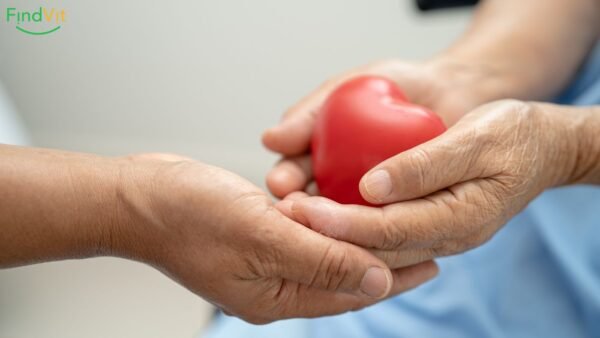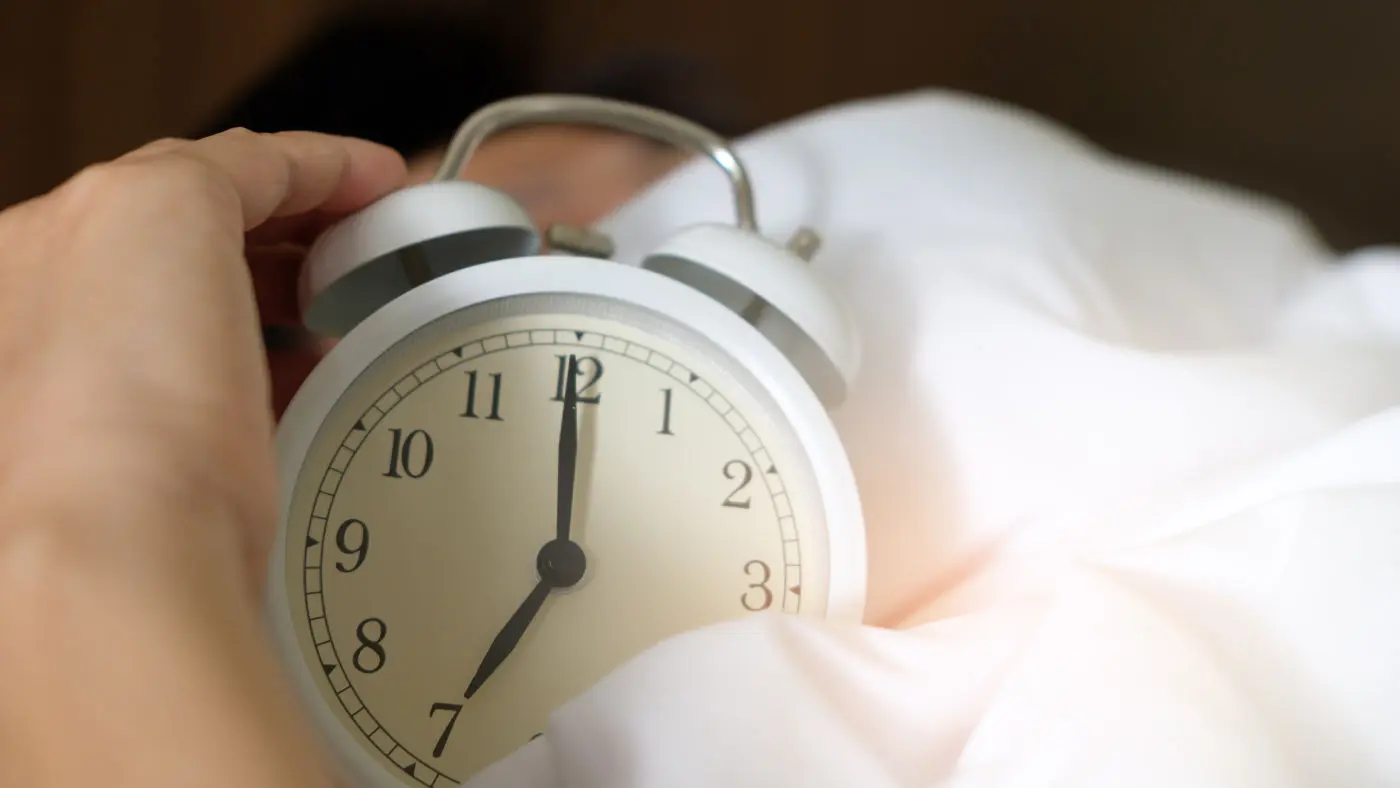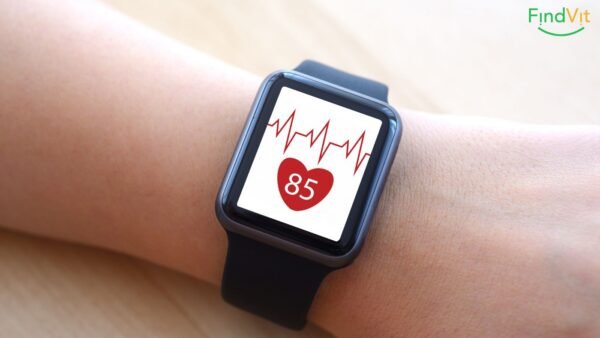
Kaip Sustiprinti Širdį: Kardiologų Patikrinti Metodai Be Vaistų
Kasmet pasaulyje nuo širdies ir kraujagyslių ligų miršta apie 17 milijonų žmonių, ir šios ligos išlieka pagrindinė lietuvių mirties priežastis. Tačiau gera žinia ta, kad…

When summer time comes, we turn the clock forward one hour. It looks like we lose very little - one hour of sleep. While losing one hour of sleep may seem like nothing, the overall effect of sleep deprivation can affect your health more than you think.
Daylight saving time increases your exposure to morning darkness and evening sunlight. This disrupts your "internal clock", which can disrupt your sleep cycle and other bodily functions. This so-called "internal clock" in the brain coordinates the various biological clocks in your body so that these clocks are in sync with each other.
The "inner clock" is a group of about 20,000 nerve cells that form a structure called the suprachiasmatic nucleus (SCN) in a part of the brain called the hypothalamus.1 This body clock regulates when you are awake and when you are ready to sleep. This 24-hour repeating rhythm, called the circadian rhythm, is synchronized with environmental cues such as daylight and darkness. Light received through the eyes (even through closed eyelids during sleep) stimulates a signal that travels to the SCN, telling the brain that it is daytime.1,2
Your internal master clock also controls the release of chemicals in a daily rhythm. As the sun rises, the body releases cortisol, a hormone that naturally prepares you to wake up. When it gets dark, the body releases melatonin, a hormone that helps you feel sleepy and tells your body that it's time to sleep.1,3 During the summer, the sun illuminates the sky for a longer time - this affects the biological processes that prepare the body for sleep. And when the clocks go forward an hour every spring, you can feel glum.
Sleep essentially "recharges" your entire body. It has a restorative effect, especially on the immune, endocrine and nervous systems. Sleep also keeps your brain functioning so you can think clearly and focus.3,4
While there are many benefits to getting a good night's sleep, there are also some risks if it is cut short. When you sleep fewer hours than your body needs, you can cause a sleep deficit. The recommended nighttime sleep time for adults is 7-9 hours. Yet more than a third of adults report getting less than seven hours of sleep a night. 5-7 An adult who sleeps six hours a night for five nights has a sleep deficit that varies between 5 and 15 hours. As sleep deprivation increases, brain and body functions can deteriorate.
According to a recent small study, 20-year-olds who slept 30 percent less than they needed for 10 nights did not recover fully cognitively even after seven nights of unrestricted sleep.
in 2017 study found that healthy middle-aged adults who had one night of poor sleep had significantly increased levels of amyloid beta peptide9 - the amount of the component of amyloid plaques characteristic of Alzheimer's disease.10
In the short term, sleep deprivation can cause learning, concentration and reaction problems. You may have difficulty making decisions, solving problems, remembering things, controlling emotions and behavior, or coping with change.3,4
Long-term sleep deprivation is linked to many chronic health problems, including heart disease, kidney disease, high blood pressure, diabetes, stroke, obesity and depression.3,4
Making up for lost sleep isn't as simple as "falling asleep." There is also no need to "make up" the sleep deficit with an hour of sleep for every hour of sleep lost. The most important thing is to get enough sleep so that you wake up feeling rested. This includes each type of sleep: (REM) and non-REM.
Normally, REM and non-REM sleep occur regularly in 4-6 cycles each night. Dreams usually occur during REM sleep. Non-REM sleep includes what is commonly called deep sleep or slow-wave sleep. Your ability to function and feel good when you're awake depends on getting enough sleep and getting enough of each type of sleep. It also depends on whether you sleep at a time when your body is in the mood and ready for sleep.3,11,12
If you feel sleepy when summer comes, try these methods to adapt your mind and body to the new rhythm of life faster. 13
Adequate sleep is as important to your body as breathing and eating. As the weather warms and the days get longer, make sure you prioritize getting a good night's sleep to benefit your mind and body.
If something is disturbing your sleep, take the test "Your Day", which will give you insights into the vitamins and minerals that can help support good sleep.
*In time, pay attention to the signals sent by your well-being;
*Replenish the body with natural minerals or vitamins;
*Enjoy energy and good mood every day!
† Our website provides general information only. If you have a specific illness or are taking additional medications or supplements, consult your doctor or pharmacist.

Kasmet pasaulyje nuo širdies ir kraujagyslių ligų miršta apie 17 milijonų žmonių, ir šios ligos išlieka pagrindinė lietuvių mirties priežastis. Tačiau gera žinia ta, kad…

Artificial intelligence in medicine has made impressive progress – it has already successfully passed medical licensing exams and can handle internal medicine cases. Even more impressive is that special…

The human heart beats an average of more than 2.5 billion times during a lifetime. This amazing organ works tirelessly to maintain a vital pulse rhythm, the rate of which (pulse rate)…

KIKI Health Zeolitas - Ceolitas, milteliai, 60 g

Trace Minerals Mega Magnesium 400 mg. Liquid with minerals, 118 ml.

KIKI Health Zeolitas - Ceolitas su aktyvuota anglimi, milteliai 60 g.

KIKI Health Zeolitas - Ceolitas, milteliai, 120 g.

SUPER OMEGA-3 - norvegiški žuvų taukai su Omega-3, didelė koncentracija, 100+30 kapsulių
| Cookie | Duration | Description |
|---|---|---|
| cookielawinfo-checkbox-advertisement | 1 year | Šį slapuką nustato GDPR Cookie Consent papildinys. Slapukas naudojamas išsaugoti vartotojo sutikimą dėl slapukų kategorijoje „Analitiniai“. |
| cookielawinfo-checkbox-analytics | 11 mėnesių | Šį slapuką nustato GDPR Cookie Consent papildinys. Slapukas naudojamas išsaugoti vartotojo sutikimą dėl slapukų kategorijoje „Analitiniai“. |
| cookielawinfo-checkbox-functional | 11 mėnesių | Slapukas nustatomas pagal GDPR slapukų sutikimą, kad būtų įrašytas vartotojo sutikimas dėl slapukų kategorijoje „Funkciniai“. |
| cookielawinfo-checkbox-necessary | 11 mėnesių | Šį slapuką nustato GDPR Cookie Consent papildinys. Slapukai naudojami saugoti vartotojo sutikimą dėl slapukų kategorijoje „Būtini“. |
| cookielawinfo-checkbox-others | 11 mėnesių | Šį slapuką nustato GDPR Cookie Consent papildinys. Slapukai naudojami saugoti vartotojo sutikimą dėl slapukų kategorijoje „Kiti“. |
| cookielawinfo-checkbox-performance | 11 mėnesių | Šį slapuką nustato GDPR Cookie Consent papildinys. Slapukai naudojami saugoti vartotojo sutikimą dėl slapukų kategorijoje „Vykdymas“. |
| elementor | never | Šį slapuką naudoja svetainės „WordPress“ tema. Tai leidžia svetainės savininkui realiuoju laiku įdiegti arba keisti svetainės turinį. |
| viewed_cookie_policy | 11 mėnesių | Slapuką nustato GDPR Cookie Consent įskiepis ir jis naudojamas norint išsaugoti, ar vartotojas sutiko, kad būtų naudojami slapukai, ar ne. Jame nesaugomi jokie asmens duomenys. |
| Cookie | Duration | Description |
|---|---|---|
| _ga | 2 metai | _ga slapukas, įdiegtas Google Analytics, apskaičiuoja lankytojų, seansų ir kampanijos duomenis, taip pat seka svetainės naudojimą svetainės analizės ataskaitoje. Slapukas išsaugo informaciją anonimiškai ir priskiria atsitiktinai sugeneruotą skaičių unikaliems lankytojams atpažinti. |
| _ga_JWS80V051Z | 2 metai | Šį slapuką įdiegė Google Analytics. |
| omnisendSessionID | 30 minučių | Šį slapuką nustato teikėjas Omnisend. Šis slapukas naudojamas unikaliam seanso ID nustatyti. Slapukas statistiniais tikslais renka informaciją apie lankytojų elgesį svetainėje. |
| soundestID | sesijos metu | Šį slapuką nustato teikėjas Omnisend. Šis slapukas naudojamas norint nustatyti, ar lankytojas svetainėje yra naujas, ar lankytojas lankėsi anksčiau. |
| Cookie | Duration | Description |
|---|---|---|
| omnisendAnonymousID | 1 year | Šį slapuką nustato teikėjas Omnisend. Šis slapukas naudojamas išsaugoti vartotojo veiksmą svetainėje su unikaliu ID. Slapukas užšifruoja lankytojo duomenis, kad būtų apsaugoti naudotojo duomenys. |
| soundest-views | sesijos metu | Aprašymas negalimas. |
| woocommerce_recently_viewed | sesijos metu | Aprašymas nepasiekiamas. |
